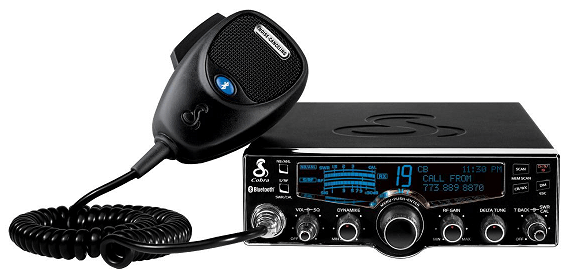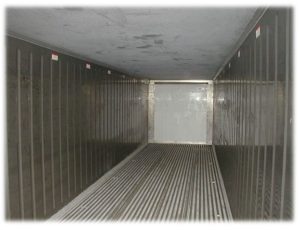The Food Safety Modernization Act was created to protect food from contamination especially as it is transported through the supply chain. Government agencies aim to track foodborne outbreaks that can cause people to fall ill from eating food contaminated during production, processing, or transportation.
Truck drivers play an important role in preventing contamination within the supply chain and help maintain food safety during transportation of food products. The main regulation that applies to transport of food in the Food Safety Modernization Act is The Sanitary Transportation of Human and Animal Food.
Many refrigerated transport companies follow a process control system called HACCP (Hazard Analysis Critical Control Point). This process identifies points in the transport process where hazards may occur, and a plan is then created to deal with these threats. The three main hazards associated with delivery of frozen food of HAACP are:
- Physical hazards – Hard or sharp objects or other foreign material that can cause injury such as choking, cuts, or broken teeth. These materials include things such as glass, metal, plastic, stones, wood, bone, or pits. Other foreign physical material that can damage a food supply include hair, insects, and sand.
- Chemical hazards. Chemical hazards include pesticides, sanitizers used to clean reefer trailers, and diesel engine fuels. Food allergens are also a chemical hazard. The big 8 food allergens are peanuts, milk, eggs, tree nuts, fish, soy, shellfish, and wheat.
- Biological hazards are microbes that can include bacteria viruses, molds, and parasites and other pathogens that can cause diseases. Common foodborne illnesses caused due to biological hazards include Salmonella and E. coli.
Role of Truck Drivers
Truck drivers can contribute to the development of foodborne illnesses through three main hazardous ways of operation which are poor time-temperature control, cross contamination, and poor personal hygiene.
Time temperature control for safety (TCS)
TCS Foods are those that need temperature controls to stop pathogens from growing or forming toxic material. Milk, cooked rice, and meats are examples of TCS foods that can develop pathogens to dangerous levels within hours if temperature is not controlled for safety. Fruits and vegetables are usually mean to be cooled and not frozen. However, to name a vegetable that is often frozen is green peas. to prevent time temperature abuse when transporting food
To prevent time temperature abuse when transporting food, ensure the trailer is cooled to the required temperature before loading. Improper hot holding and improper cooling are both examples of temperature abuse.
Owner operator truck drivers are responsible for cleaning trailers between loads to remove physical objects, dirt, odors, and other residues left behind from the previous load. Another task drivers are presented to completing include the monitoring of clearly identified upper and lower temperature limits. Loaders and unloaders working with full and empty trailers must practice personal hygiene practices.
Shippers and carriers are required to have written procedures with regards to food safety. Specific information such as temperature controls, cleaning/maintenance documentation, and previous load information must be retained in a carrier’s records. In the food industry, who is a carrier? A carrier is the company that transports food using tractors and trailers.
Security seals are used to prevent tampering while in transit and must match the bill of lading. LTL carriers that have multiple pickup and delivery points should require drivers to reseal the trailer at each stop. If a driver becomes aware of a temperature control failure, a qualified food safety inspector must be notified of the instance and that food should not be sold or distributed until a determination of safety is made.
Wearing gloves can keep food safe by preventing contaminants from spreading. Remember: gloves are not a substitute for proper hand-washing and sanitary practices.
To ensure proper protection for foods during storage ensure there is enough clearance between the cargo and trailer side walls, ceiling and rear doors. Stacking with airflow in mind means packages should be stacked so that air can flow through them. Furthermore, lighter packages should be stacked atop of heavier ones. Moreover, pallets should be positioned with their vertical structure boards placed backward and forward.
Role of the Reefer Unit
The main purpose of a reefer unit is to maintain the temperature of cargo. It is not intended to cool or heat freight. Therefore, refrigerated trailers must always be pre-cooled before loading. The air delivery chute made from fabric moves cooling air from the front to the rear of the trailer. The floor of a trailer is constructed with grooves that allows warmer air to rise and move back to the reefer unit to be cooled again.
Before every load a refrigerated trailer requires a check of the trailer’s condition, a cleaning of the trailer, inspection of the reefer unit, and pre-cooling of the trailer.
Furthermore, there should be no cracks or damage to the insulation or walls of the trailer that can cause cold air to leak.
The reefer unit should be refueled when the level gets just above the ¼ mark. Most reefer trailers have an electronic pre-trip system that takes about 30 to 40 minutes to complete.
Conclusion
The best strategy for transporting refrigerated goods is to have written documentation on the required safety procedures as they relate to the federal food safety regulations. The best way to avoid a problem is to prepare the trailer and reefer unit by doing the following:
- Complete a thorough pre-trip inspection including an electronic pre-trip inspection.
- Check the reefer unit’s fuel level
- Check temperature settings on bill of lading
- Inform dispatch immediately in the event of a breakdown.
For more information, refer to the Food Safety Modernization Act.




dear sir/ madam
many hospitals have gone to contracting out food service. I need a summary of rules and regulation of cooked food transportation specially to hospitals.